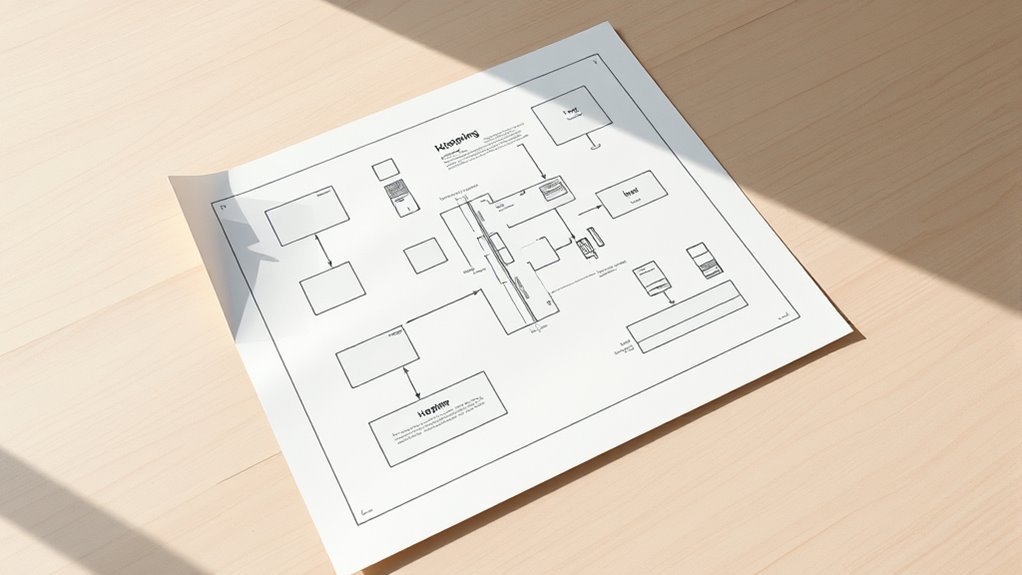Lithuania offers many ways to make money. Employment focuses on manufacturing, IT, and services. Strong skills are needed in engineering, tech, and finance. Entrepreneurship thrives in tech, manufacturing, and services. Investment options include real estate, stocks, and bonds. Remote work includes freelancing and gig economy. Fluency in Lithuanian, English, or Russian is valuable. Further insights await to illuminate this landscape.
Main Points
- Secure employment in high-demand sectors like manufacturing, IT, or finance by leveraging your skills, especially in engineering and tech.
- Launch a business taking advantage of Lithuania’s strategic location and available support through incubators and grants, focusing on tech and manufacturing.
- Invest in real estate in major cities such as Vilnius, Kaunas, and Klaipėda, as well as explore Baltic investment funds or government bonds.
- Explore remote work opportunities like freelance writing, graphic design, or software development using online platforms to access global markets.
- Engage in the gig economy through driving, delivery, or virtual assistance, building an online reputation to increase security and earning potential.
Employment Opportunities: Finding Your Niche
For job seekers looking to make money in Lithuania, understanding the employment landscape is critical to finding opportunities. Key sectors include manufacturing, IT, and services. Skilled workers in engineering, technology, and finance are in high demand.
Lithuania’s growing economy offers various jobs, from entry-level to executive positions.
Understanding Lithuanian labor laws and cultural nuances will help. Networking through industry events and online platforms can be effective.
Fluency in Lithuanian or other languages such as English or Russian can increase one’s marketability. Researching specific companies and their needs is crucial for a successful job search.
Entrepreneurship: Starting Your Own Business

Lithuania presents entrepreneurial opportunities for those interested in starting a business. The country’s strategic location and EU membership provide access to both Eastern and Western markets.
Consider sectors with growth potential, such as technology, manufacturing, and services. Thorough market research is vital to identify unmet needs and potential customer bases.
Develop a detailed business plan outlining your strategy, financial projections, and marketing approach.
Lithuania offers resources for startups, including business incubators, grants, and support programs. Networking and establishing connections with local professionals, organizations, and industry experts can boost your venture’s success.
Investing in Lithuania: Real Estate and More
Beyond entrepreneurial ventures, opportunities exist for those looking to invest capital in Lithuania. Real estate presents a tangible asset option, with markets in Vilnius, Kaunas, and Klaipėda showing potential for appreciation and rental income.
Beyond property, the Lithuanian stock exchange offers exposure to local companies. Investment funds focused on the Baltics can provide diversification.
Government bonds are generally considered low-risk investment vehicles.
Venture capital investments, while riskier, can be lucrative, especially in sectors like fintech and IT. Thorough due diligence is crucial before committing capital to any investment.
Remote Work and the Gig Economy
As technology continues to evolve, remote work and the gig economy are increasingly viable options for generating income in Lithuania. Lithuanians can leverage their skills and access global opportunities through online platforms.
Freelancing in areas like writing, graphic design, and software development provides avenues for income.
The gig economy also encompasses services such as driving, delivery, and virtual assistance. Proficiency in English and other languages enhances earning potential. Success requires consistent effort and building a strong online reputation. Platforms offer varying levels of security, so due diligence is essential. This model allows for flexible work schedules and location independence.
Common Questions
What Are the Tax Implications of Different Income Streams?
Tax implications vary across income streams. Employment income, self-employment income, and investment income face different tax rates and deductions. Lithuania has specific regulations for each category, impacting the net earnings. Individuals should consult Lithuanian tax authorities for accurate figures.
What Social Programs Are Available for Low-Income Individuals?
Lithuania offers social assistance to low-income residents. These programs include targeted social aid, heating compensation, and housing allowances. Eligibility and benefit levels depend on individual or family income and specific needs, assessed by local municipalities.
How Does the Lithuanian Healthcare System Work?
Lithuania’s healthcare system uses mandatory health insurance. Residents contribute to the National Health Insurance Fund. This fund then covers various medical services. Patients usually have a primary care physician referral for specialized care. Public and private healthcare options are available.
What Are the Best Methods for Learning the Lithuanian Language?
Best methods for learning Lithuanian include language courses, immersion programs, and online resources. Utilizing language exchange partners, practicing daily, and focusing on vocabulary acquisition can prove beneficial. Consistency and engagement with native speakers are crucial for fluency development.
What Cultural Norms Impact Business Dealings?
Lithuanian business culture values formality, respect, and building relationships. Communication is often indirect. Hierarchy is important, and decisions may take time. Punctuality and professional attire are expected, and initial meetings often involve polite conversation before business discussions.